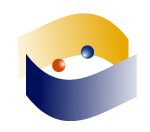Computer education parallelisms
I opened Slashdot's «Looking back from the 1980s at computers in education» article because I am quite convinced of the point some of the commenters argued before me, (and it's good to know others think as you do ;-) ) — When I got close to computers, learning computing for children basically meant learning programming in a fun way.
For years, my hobbies included Logo and BASIC. At age 7 (by 1983), typing TeX and using Emacs at the computer of the institute where my father worked, I started walking the path I took for my professional life. When I taught computing to high school students as my first paid job (which didn't last long, only a semester, as for an untrained 20 year old it is very hard to control a group of kids nearly his age), I tried to teach some basic BASIC programming (which was the best I knew then)... But no, both students and the school wanted me to focus on teaching MS Office applications. It seemed stupid for me 14 years ago, and it still seems stupid for me today.
Anyway, on Slashdot, I came across this beautiful way to explain what computer education should mean:
"computing is no longer taught in schools (parents look quizzical), they are simply 'trained' (parents look like they vaguely get it). if this was sex instead of computing that was taught in schools, would you prefer that your kids have sex _education_ or sex _training_? (parents finally get it)".
By the way, if you are interested in reading a bit of paleofuturism, to feel the joy and excitement with which computer-aided education was seen 30 years ago, be sure to get the Classroom Computer News issue for September-October 1980, linked from the Slashdot article (and copied over here for your convenience, of course!)
| Attachment | Size |
|---|---|
| Classroom Computer News vol. 1 no. 1, sep-oct 1980 | 3.54 MB |
- Bitácora de gwolf
- Log in or register to post comments


